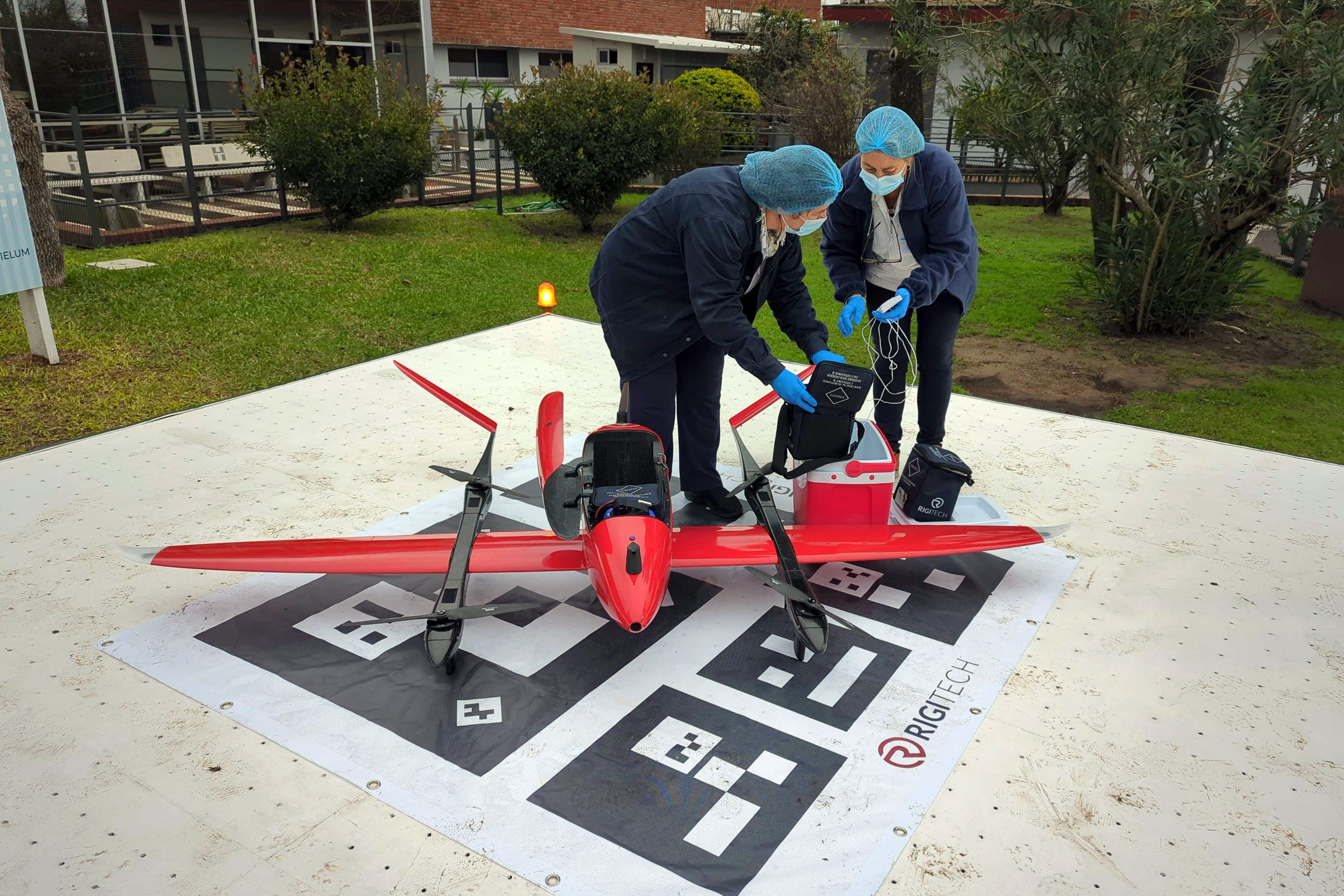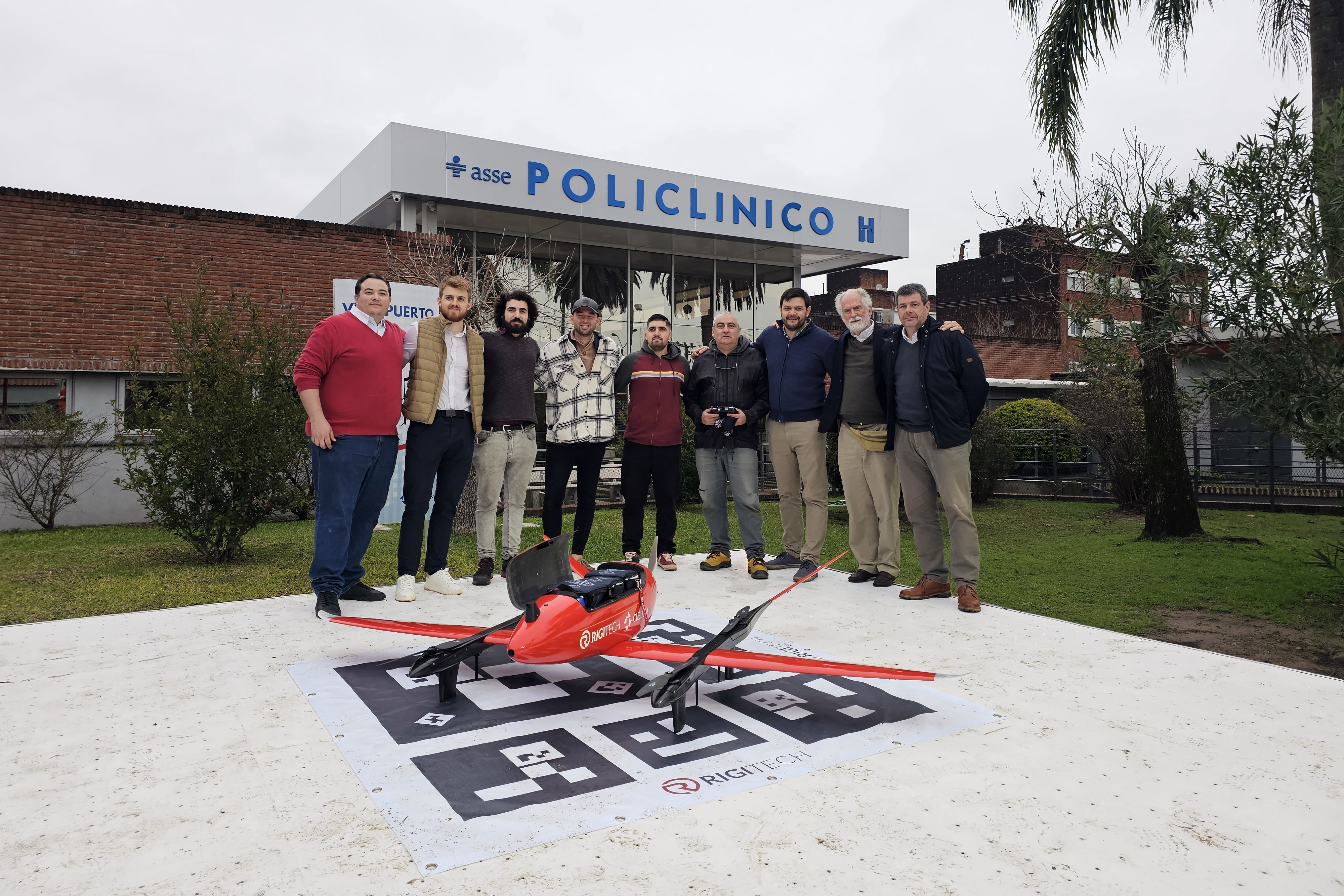Tacuarembó, Uruguay. 12 July, 2023 – A new milestone in the implementation and adoption of drone delivery technology, RigiTech’s Eiger drone has begun a 4-month pilot project in Uruguay, pioneering the first BVLOS operation in Latin America. Spanish-Uruguayan company CIELUM, in coordination with engineer Franco Simini from the biomedical engineering nucleus of the Faculty of Engineering (UDELAR) and Tacuarembó Hospital (ASSE), begun flying BVLOS (Beyond-Visual-Line-of-Sight) deliveries to extend the hospital’s medical logistics throughout the Tacuarembó department in Uruguay.
The Eiger’s 15-litre volume capacity and long-distance range of 100 km enables Tacuarembó Hospital to deliver medical supplies and products, including biological material like breast milk, blood samples, medicine. Operated by a local team, part of the hospital’s permanent staff, the first BVLOS operations took place last week, monitored remotely through RigiCloud. Further signalling the transformative nature of this technological innovation, the hospital also introduced the first vertical port in Uruguay, built at the hospital, equipped with RigiTech’s Precision Landing pads, as well as a hangar (donated by a local company) and adequate lighting to allow nighttime flights.
After obtaining authorisations from DINACIA (National Directorate of Civil Aviation and Aeronautical Infrastructure) the project kicked off last week, creating a drone delivery network between the hospital and 3 rural polyclinics of the RAP Tacuarembó: Villa Tambores, Villa Curtina and Villa Ansina. During the execution of the project, they will be expanded to a maximum of 10 rural polyclinics. This project, financed by international cooperation funds, will provide a logistics solution for the largest department in Uruguay (15,400 square km), conquering areas of difficult geographical accessibility, and will reduce the emission of carbon footprints in the transport process by 95%, when compared to ground transportation.
Tacuarembó Hospital has been recognised by UNICEF as the first Baby-Friendly hospital in the country, and created the first breast milk bank (BLM) inland. As a priority, the transport of human milk to and from the BLM is scheduled for children who urgently need it because they are premature, underweight or malnourished, and many mothers are willing to donate this vital food, from surrounding rural areas. Thanks to strategies implemented 20 years ago, and the regional CTI (Intensive Treatment Centre) for children, the region achieved a sustained decrease in infant mortality; starting from very high figures (23 per thousand) to one of the lowest in the country.

According to the hospital director, Dr. Ciro Ferreira, “this air logistics strategy will allow us to bring the territory closer, and be at the side of our ASSE users, shorten the time in the diagnosis and treatment of people who live in rural areas, without the need to come to the hospital. The delivery of samples for examinations and their processing in the central laboratory can be done quickly, and will serve rural doctors for adequate decision-making in a timely manner; as well as a greater collection of pasteurised human milk for our newborns at the children’s CTI. It will also be possible to deliver medical supplies or specific medicines to the polyclinics, in specific situations that do not admit delays, such as the shipment of anti-venom serum.”
“With this project, Uruguay enters a new era: urban and rural air mobility, with unmanned aircraft. This is possible thanks to the development of a low-altitude airspace support that has been set up together with civil aviation and the ANII, and having a reference centre such as Tacuarembó Hospital,” said Sebastián Macías, CEO at CIELUM.


